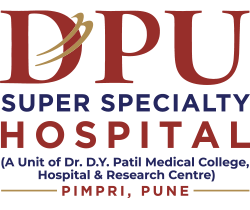Life After TAVI Surgery: What to Expect?

Have you ever wondered what life looks like after a major heart procedure? For many patients, undergoing Transcatheter Aortic Valve Implantation (TAVI) can feel like stepping into a new chapter of life. With procedural success rates as high as 98-99% in some of the world’s leading centres with top TAVI specialists, TAVI is revolutionising cardiac care, offering a minimally invasive solution for those suffering from severe aortic stenosis.
But what happens once the procedure is over? How does one navigate the road to recovery and embrace the lifestyle changes that follow? Read on to uncover what you can expect after TAVI surgery and learn how to make the most of your newfound heart health.
1. Fast-Track to Recovery: What to Expect Post-Surgery
The initial recovery phase after TAVI surgery is remarkably shorter than traditional valve replacement surgeries. Most patients are likely to spend a few days in the hospital, typically between 3 to 5 days, depending on their specific health conditions and the absence of complications. During this period, medical teams closely monitor the patient's vital signs, heart function, and the presence of any potential complications like bleeding or vascular issues related to the catheter insertion site.
Pain management is also a crucial aspect of post-surgery care. Patients generally experience mild to moderate discomfort, primarily from the catheter insertion site rather than the heart. Pain relief medications are often prescribed to manage this discomfort effectively. Patients need to follow their doctor's advice closely during this period and communicate any concerns.
2. Embracing a Heart-Healthy Lifestyle
Adopting a heart-healthy lifestyle is non-negotiable after TAVI. Dietary changes, regular physical activity, and weight management become pivotal. A balanced diet rich in fruits, vegetables, lean proteins, and whole grains is recommended. Reducing salt intake is crucial to managing blood pressure levels, directly affecting heart health.
Based on the medical team's guidance, physical activity should be resumed gradually. Activities like walking can start fairly soon after the procedure, and progressively more strenuous activities can be added as the recovery progresses. However, patients should avoid heavy lifting and strenuous workouts unless their cardiologist approves.
3. Keeping Your Heart in Check: Regular Monitoring
Regular follow-up appointments are critical after TAVI surgery. These check-ups allow the cardiologist to monitor the heart's function and the performance of the new valve. It’s also a time when patients can discuss any symptoms or concerns they might be experiencing. Typical tests during these visits might include echocardiograms, electrocardiograms, and chest X-rays.
Patients should also be vigilant about new or returning symptoms, such as breathlessness, chest pain, or feeling faint, which could indicate potential problems. Immediate medical attention is necessary if any of these symptoms occur.
4. Long-Term Care: Beyond the Hospital Walls
Long-term care after TAVI involves continuous monitoring and regular consultations with a heart team. This team usually includes a cardiologist, a surgeon, and often a cardiac rehabilitation specialist. The focus is not only on the physical aspects of recovery but also on emotional and psychological support. Adjusting to life after major surgery can be challenging, and support groups or counselling might be beneficial.
5. Emotional and Psychological Support
The emotional and psychological impact of undergoing TAVI surgery should not be underestimated. Patients often face anxiety and stress both before and after the procedure. Emotional support from family, friends, and healthcare providers plays a crucial role in a patient's recovery. Engaging with a counsellor or a psychologist can also help patients manage their emotions and adapt to the lifestyle changes that come with TAVI surgery.
Support groups specifically for TAVI patients can be beneficial. Sharing experiences and hearing how others cope with similar challenges can provide comfort and practical tips for dealing with post-operative life. Hospitals and health clinics often have information on local support groups and resources.
6. Managing the Unexpected: Potential Complications
While TAVI significantly reduces the risk compared to open-heart surgery, it is not devoid of potential complications. These might include blood vessel complications, bleeding, infections, or irregular heart rhythms. Recognising the signs of these complications early can significantly improve the prognosis.
Patients should be educated about the symptoms that require immediate medical attention, such as severe chest pain, increased swelling at the catheter insertion site, fever, or any new symptoms that didn't exist before the surgery. Regular check-ups can help detect and manage these complications early, ensuring better health outcomes.
7. The Role of Technology: High-Tech Heart Monitoring
Advancements in technology now allow for better monitoring and management of heart health post-TAVI. Devices such as remote monitoring tools and wearable technology can help track heart rate, blood pressure, and other vital signs. This data can be shared with healthcare providers in real time, facilitating timely interventions when necessary.
Apps and software programs designed for heart health can also support patients by reminding them to take their medications, follow their exercise routines, and track their dietary habits.
8. Empowering Patients and Families with Education
Education is a vital component of post-TAVI care. Patients and their families must be well-informed about the care required after leaving the hospital. This includes understanding how to manage the recovery at home, recognising symptoms of potential complications, and knowing when to seek medical help.
Healthcare providers should ensure that educational materials are straightforward and accessible, enabling patients and their caregivers to feel confident in managing the recovery process. Workshops or educational sessions can be extremely useful, providing detailed information and answering any questions the patients or their families might have.
9. Looking Ahead: Life Longevity and Quality Improvements
The ultimate goal of TAVI surgery is not just to prolong life but to enhance its quality. Patients often experience a marked improvement in their ability to perform daily activities without the debilitating symptoms of aortic stenosis. Regular physical activity, balanced nutrition, and mental health support contribute to a longer, richer, and more fulfilling life.
As research continues and technologies advance, the outcomes of TAVI surgeries may improve further, offering even better life expectancy and quality for patients. Staying informed about new developments in cardiac care and maintaining ongoing communication with healthcare providers is essential for patients who have undergone TAVI surgery.
TAVI Surgery at DPU Super Specialty Hospital, Pimpri, Pune
At DPU Super Specialty Hospital in Pimpri, Pune, we are dedicated to providing world-class cardiac care through innovative procedures like Transcatheter Aortic Valve Implantation (TAVI). Our team of highly skilled cardiologists and surgeons are experts in minimally invasive heart procedures, ensuring that our patients receive the highest standard of care.
We take pride in our state-of-the-art facilities and advanced medical technology, which allow us to perform TAVI surgeries with exceptional precision and success. Our comprehensive approach includes thorough pre-surgery evaluations and personalised post-operative care plans tailored to meet each patient's unique needs.
Conclusion
Life after TAVI surgery in India involves careful monitoring, lifestyle adjustments, and regular medical check-ups. Patients can look forward to significantly improving their quality of life with the right approach and support. It's crucial for anyone considering or recovering from TAVI to stay informed, adhere to their doctor’s recommendations, and maintain regular contact with their TAVI specialist to ensure the best possible outcomes.








